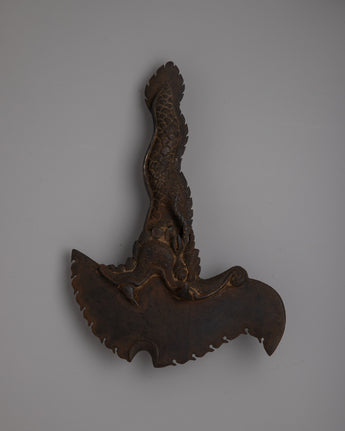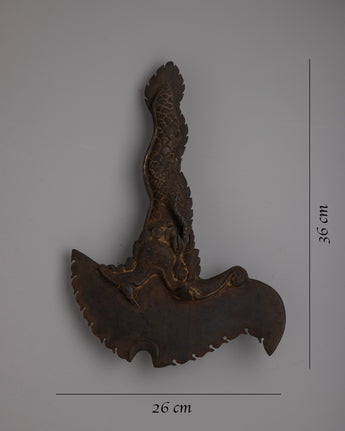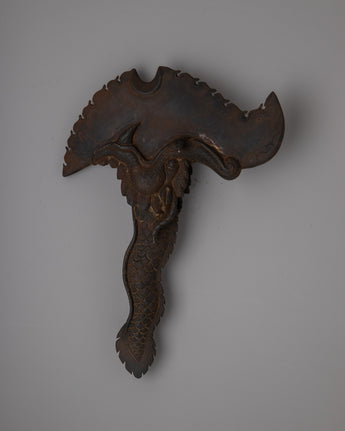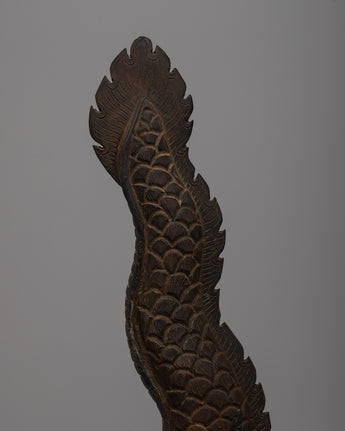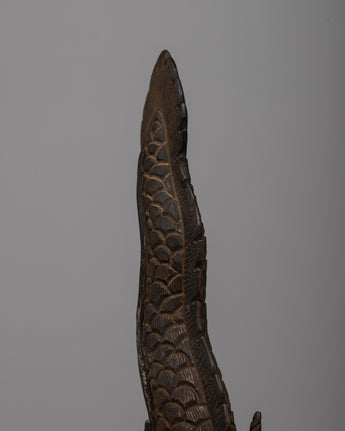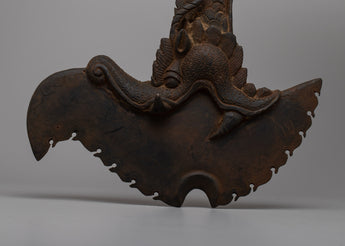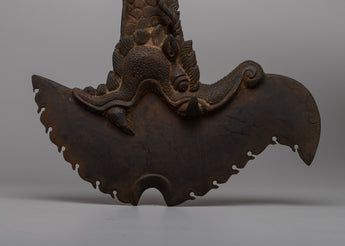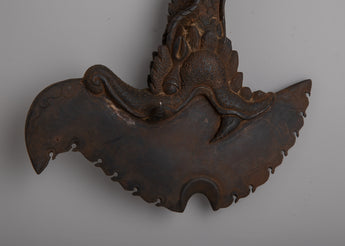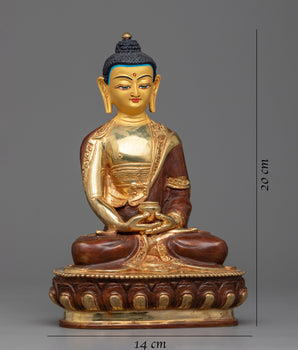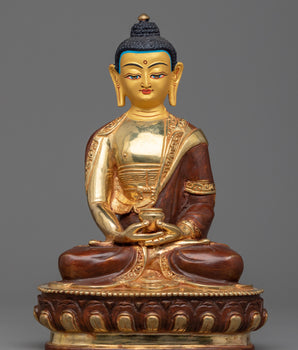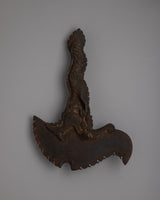
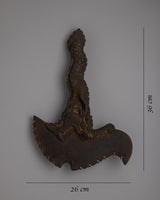
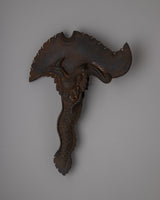
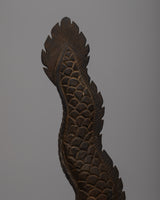
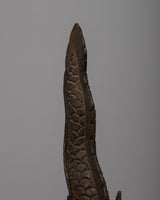
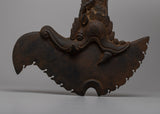
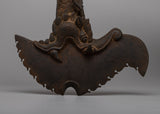
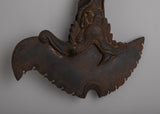
Iron Oxidized Kartika Knife | Tibetan Buddhist Ceremonial Knife

100% AUTHENTIC

HANDMADE

FREE SHIPPING
Iron Oxidized Kartika Knife
About Ritual Item
A handcrafted ritual tool with deep roots in the Tibetan Buddhist tradition is the Iron Oxidized Kartika Knife. The Kartika is a key concept in Buddhist teachings, representing the cutting through of ignorance and ego. It is made of iron with an oxidized finish. The Kartika's unique aged look is a result of the oxidation process, which also improves its classic aesthetic.
The Kartika is used in many tantric rituals and is usually shown in the hands of angry gods. This knife's iron body guarantees its longevity and durability, making it appropriate for ceremonial use as well as serving as a spiritual relic. Its oxidized finish adds to its aesthetic appeal and represents the enduring quality of spiritual wisdom.
This specific Kartika exhibits the artists' painstaking skill and attention to detail thanks to its handmade nature. Due to its traditional construction and design, it is a valuable item for collectors of religious artifacts, Tibetan Buddhist practitioners, and anyone interested in the cultural significance of Buddhist ritual tools.
|
Introduction to Phurba
The ritual dagger (Sanskrit: Kila; Tibetan: phurba) is essential to the dispelling of evil and is understood as being especially helpful in neutralizing the forces that impede Tantric Buddhist practice. Its origins are ancient, appearing in the Indian Rg Veda as the central blade of the vajra that Indra used to slay the primordial cosmic snake Vritra. Its Sanskrit term, Kila, which means peg or stake, was probably linked to Vedic sacrifices. The three-headed Vajrakila Buddha is invoked through meditation on the Vajrakila Tantra; an early Indian text first propagated in Tibet in the eighth century by Padmasambhava, one of the founding masters of Tibetan Buddhism.
---------------------------------------
Size: 36 cm (Height) x 26 cm (Width)
Weight: 2.65 kg
Material: Oxidized Iron
---------------------------------------
How to set up your own Buddhist Shrine?
-Find a clean, quiet, and uncluttered spot.
-Set up an altar table, and cover it with an altar cloth that calls to you.
-Place your sacred item (statue, thangka, or a picture of Buddha) at the center.


